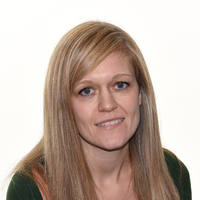Cellular Genetics Wet Lab Support Team
Cellular Genetics
About the team
Our core team of eight staff provides bespoke wet-lab and lab management assistance for all of the Faculty research groups within the Sanger Institute’s Cellular Genetics Programme.
Our expertise lies in developing innovative ways to enable our scientists to study and understand the actions and interactions of individual cells in tissues and samples that could not be studied in such depth before.
In particular we:
- support sample acquisition logistics
- oversee sample management and monitor compliance
- introduce and optimise specialised cutting-edge single-cell and spatial genomic methodologies
- provide lab space and manage its use.
Sample processing and genomic profiling
Tissue handling
Tissue samples received into the Programme are routinely processed to allow for running multiple assays on a single sample, and for cryopreservation or fixing for future use.
Droplet-based single cell work
We prepare samples for droplet based single cell RNA-sequencing.
We dissociate samples into single cell or nuclei suspensions prior to 10X droplet encapsulation, performing FACS/MACS bead sorting as necessary.
Bespoke sequencing preparation and support
The team provides support for bespoke library preparation for next generation DNA sequencing and analysis, including:
- gene expression
- immune cell profiling
- chromatin accessibility
- cell surface protein analysis.
Spatial gene expression mapping
We provide histology expertise to support the development of pioneering spatial gene expression mapping technologies being implemented within the Cellular Genetics Programme. These include spatial transcriptomics (10X Visium), RNAscope and in situ sequencing.
We develop and optimise bespoke workflows to:
- prepare tissue
- fix samples
- embed samples
- isolate and section regions for study
- carry out H&E (Hematoxylin and Eosin) staining for morphological analysis.
Drawing on the Institute's diversity of talent and knowledge
Our team works collaboratively with specialist laboratory and research teams across across the Cellular Genetics Programme and the wider research community to share our knowledge and draw on their expertise.
We engage with a broad range of scientific research and operations teams across the Sanger Institute to open up new fields of research. To achieve this we work to streamline the submission of samples for DNA sequencing and the assist with the implementation of bespoke spatial technology analysis pipelines.
Example areas of research support
The following are some of the areas of research that we contribute to at the Sanger Institute:
- Spatial multi-omics atlas of the human lung
- Mapping the temporal and spatial dynamics of the human endometrium
- The local and systemic response to SARS-CoV-2 infection in children and adults
- Blood and immune development in human fetal bone marrow and Down syndrome
- Single cell derived mRNA signals across human kidney tumors
- Single-cell multi-omics analysis of the immune response in COVID-19
- A cell atlas of human thymic development defines T cell repertoire formation
- Cells and gene expression programs in the adult human heart
Our people
Core team

Conor Parks
Scientific Manager

Tarryn Porter
Senior Scientific Manager

Dr Katie Woodcock
Postdoctoral Fellow